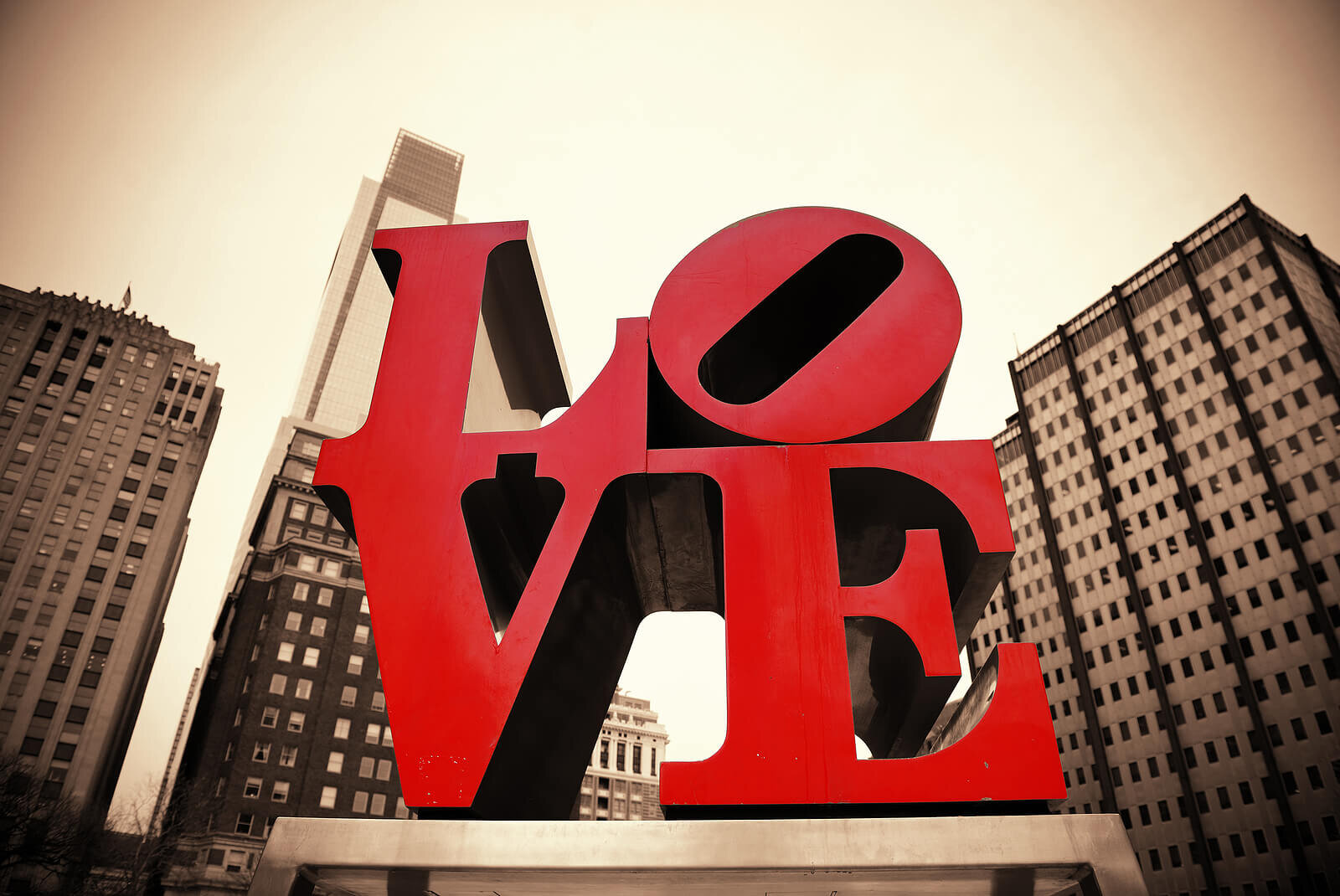An Epiphany of Brotherly Love
My wife and I lived in Philadelphia in 1998. We rented a one-bedroom apartment three blocks from Rittenhouse Square. Jenn was teaching high school English; I was in my second year of law school.
My morning routine was always the same. I'd bolt out of our building and plunge into Center City with no time to spare. I'd dart and dodge fellow pedestrians, racing north to the Market-15th Street station. I'd fly down the station stairs, crash through the turnstiles and jump on the Blue Line to West Philly, two stops to campus.
I traveled this route several hundred times during my three years in Pennsylvania. But one time was different. One morning I started into the cold and gray as usual, but by the time I'd reached 15th and Walnut—one block from home—I knew something was up. The sidewalks were the same. The streets were the same. My gait was the same. But the people were different. The people looked different.
"So God created man in his own image; in the image of God He created him; male and female he created them" (Gen. 1:27)
Rather than looking ahead and through, as I usually did, I looked at each person as I passed by. I looked closely. At the shape of their faces. The character. The creases. Their eyes. Their expressions. The way they wore their hair. And I saw their worth. Their beauty. Regardless of their gender, race, ethnicity, nationality, occupation, orientation. I saw their brilliance.
I'd never felt anything like it, but I knew it was holy. I knew that I knew. I knew what I was seeing—how I was seeing—was a gift from God. I was catching sight. I was getting a small glimpse of how God sees all of us all the time. How He sees the beloved sons and daughters He created with His very own hands.
"Then the Lord God formed man from the dust from the ground and breathed into his nostrils the breath of life, and man became a living being" (Gen. 2:7).
This new awareness, this awakening, continued up to Market Street. It continued onto the platform, then onto the subway. Swaying on the train, one hand on the bar overhead, I realized that time had slowed, or I had. I realized that I was fascinated by each of the people around me. I felt a deep kinship and love and care toward every person I saw and stood near on that loud and lurching car. To say it was overwhelmingly good is no overstatement.
By the time I emerged back above ground a few minutes later, the sensations had subsided. And I didn't know what to make of it all. It was an extraordinary experience of God's love—an encounter with his heart. But I did what I always do; I got on with life. I got on with exams and interviews and plans for the future. I confess now, I've only thought about the experience a handful of times since. I've told a few people about it but kept it mostly to myself.
Shining Like the Sun
I did think about it last year when, while doing some research, I read a bit of Conjectures of a Guilty Bystander by Thomas Merton. In his book, Merton described what's come to be called his "Fourth and Walnut Epiphany." Here's how:
In Louisville, at the corner of Fourth and Walnut, in the center of the shopping district, I was suddenly overwhelmed with the realization that I loved all those people, that they were mine and I theirs, that we could not be alien to one another even though we were total strangers.
Merton wrote that he experienced so much joy that he "almost laughed out loud." He said, "it was as if I suddenly saw the secret beauty of their hearts, the depths of their hearts ... the core of their reality, the person that each one is in God's eyes."
"If only they could see themselves as they really are" Merton mused. "If only we could see each other that way all the time." But he knew: "There is no way of telling people that they are all walking around shining like the sun."
What Does It Matter?
Merton's epiphany in 1958 changed him. The next decade saw his most purposeful and powerful writing. He wrote about the important issues of his day: war and nuclear weapons, racism and civil rights. Me, on the other hand—I realize now that I wasn't changed by that extraordinary experience on an ordinary day in Quaker City. Not much. Not yet. But after the events of the past few weeks, I want to be.
So, this is the beginning of a journey for me. In the short term, this season is going to be one of listening and praying. Listening to my brothers and sisters, near and far, trying my best to understand—their experiences and struggles and pain. And praying to my Father God, through Jesus, by the power of the Holy Spirit. I know that, with his help, I'll be able to understand how I've blown it—how I've not treated the people I've encountered in my life as though they were shining like the sun.
A new commandment I give to you, that you love one another: just as I have loved you, you also are to love one another. By this all people will know that you are my disciples, if you have love for one another (John 13:34-35).
This season will also be one of confession and repentance. As I gain a deeper understanding of how I've hurt people, taken advantage and benefited from systems of injustice and exploitation, I'm committing myself to confession—to God, of course, but to the people I've wronged too. I'm also committing to repentance. I want to turn. I want to do better. I want to hurt people less, support and edify them more.
Making Everything Right. Everything.
Jesus is doing something epic in our world. Something eternal. It's nothing less than the restoration of all things. His great project is already underway. He began it, and we're called to do our parts in pushing it forward. We're part of what's being remade. We are the work. "Therefore, if any man is in Christ, he is a new creature" (2 Cor. 5:17a). But now, having been remade, we're also called to do our parts in the work that remains. We're now also "God's fellow workers" (1 Cor. 3:9a, ESV).
This work Jesus is engaged in is the work of setting everything right—everything that's gone wrong. Every hurt. Every injustice. Every mistake. Every sin. Every broken heart. Every broken life. Redeemed. Completely. Forever.
Now that's work worth doing. That's work worth dying for.
But What Should I Do?
Near his death, St. Francis of Assisi prayed for his fellow friars: "I have done what is mine to do. May Christ teach you what is yours." That's my prayer—that Jesus teaches me during this season ever more about my part in this massive and majestic redemption project. I am eager to learn more about how He wants to notice, to care, to love and to act. To heal certain hearts, to meet certain need, and to address certain issues—those that are mine, in my part of the world, in the way He made to me accomplish them.
There are no ordinary people. You have never talked to a mere mortal . . . But it is immortals whom we joke with, work with, marry, snub and exploit—immortal horrors or everlasting splendors (C.S. Lewis, The Weight of Glory).
Every person we meet is a beloved creation of our same eternal Father God. Each of us shining like the sun because of the brilliance of whose image we all bear. I know that that's true because, for just a few minutes 22 years ago in the City of Brotherly Love, I got to see it. And now, in 2020, it's high time I begin living like I know it's true.

